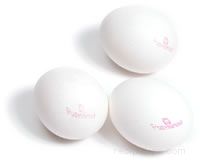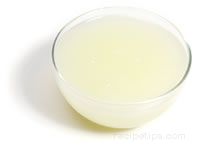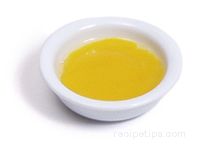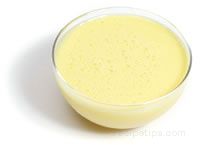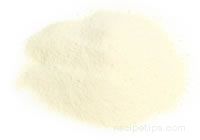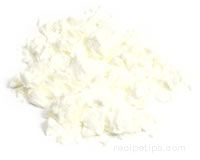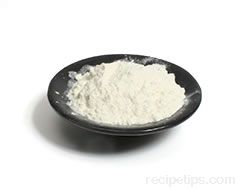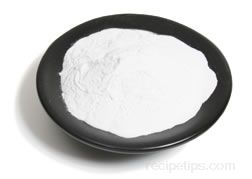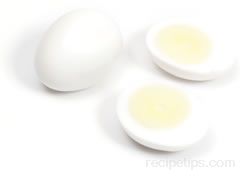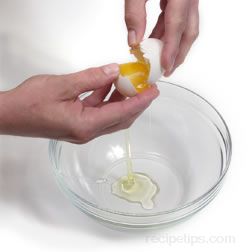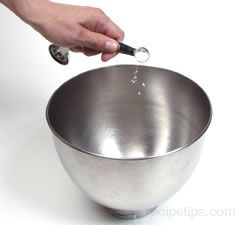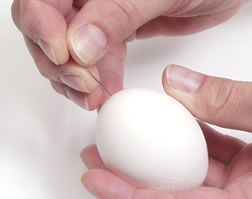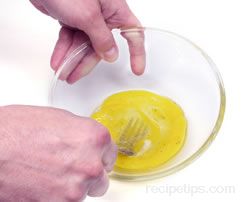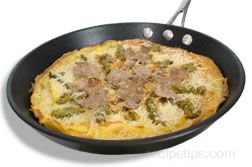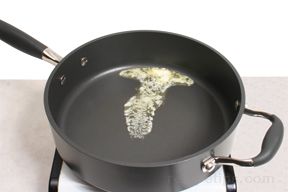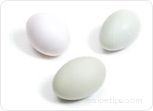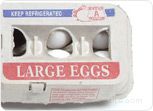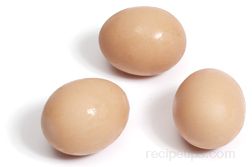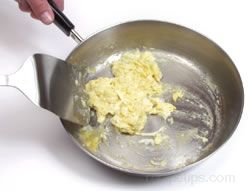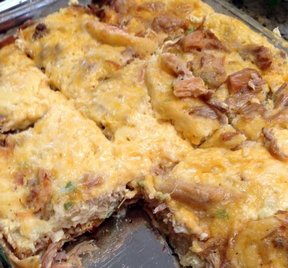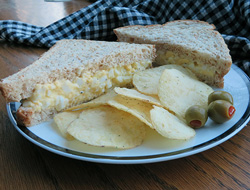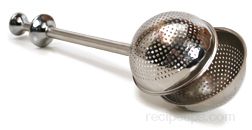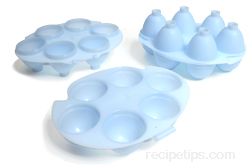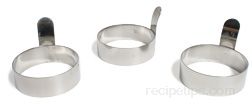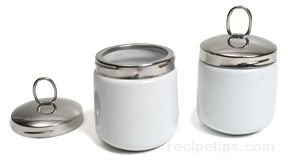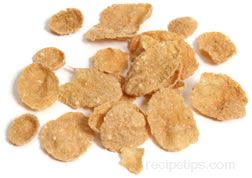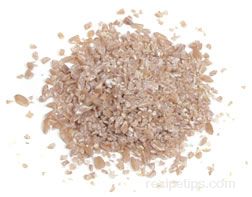Egg Products | |
|
Pasteurized shell eggs are heated for a period of time to destroy any bacteria that might be present, but the process does not cook the eggs. The eggs are more expensive than eggs that are not pasteurized, but they are a good alternative for use in raw or partially cooked egg recipes. The eggs can be used in egg dishes and as an ingredient in baked items in the same manner as eggs that are not pasteurized. The shells of the eggs are stamped to signify that the eggs have been pasteurized. Look for pasteurized eggs in most large supermarkets. | |
|
Eggs without the shells are available as a pasteurized white and yolk blend and are usually packaged in one cup and one pint containers. The pasteurization process destroys any harmful bacteria that may be present in the eggs at the time of processing. Unopened containers will keep for as long as three months under proper refrigeration. | |
|
When egg whites are required for an uncooked dish, you can purchase pasteurized liquid egg whites. The egg whites are usually packaged in easy pour containers and are convenient for cooks who use more egg whites than yolks. (Pasteurized whole eggs and pasteurized egg yolks can also be purchased.) In recipes that call for uncooked egg whites, pasteurized egg whites are much safer to consume than eggs that are not pasteurized; however, because of the pasteurization process, the beating time necessary to create stiff peaks may be three to five times longer than the beating time required for egg whites that are not pasteurized. | |
Like egg whites and whole eggs without the shell, pasteurized egg yolks are available in many large supermarkets. The egg yolks are often packaged in easy pour containers, usually in one cup and one pint sizes. Pasteurized egg yolks are convenient for cooks who use more egg yolks than egg whites in their recipes. | |
|
Egg substitutes are packaged and sold as refrigerated or frozen food items. The main reason for using egg substitutes is to cut down or eliminate the high cholesterol content of eggs. All of the cholesterol is contained within the yolk of an egg, so most substitutes are produced using egg whites only. A number of ingredients are added as substitutions for the yolks. Some of these additional ingredients may include tofu, skim milk, starch, and artificial flavorings. Egg substitutes are often used for scrambling or for preparing omelets. There are a variety of liquid egg substitutes available in most supermarkets. | |
|
Powdered whole eggs are another alternative to fresh eggs and are convenient to use and store. They can be used for most types of egg dishes or recipes requiring eggs as an ingredient. To use the powder, it is simply blended with water to produce a liquid, which is then used the same as fresh eggs. Powdered egg products are pasteurized and do not require refrigeration, which makes the products safe to use and easy to store. Powdered whole egg products are available in most supermarkets. | |
|
Pasteurized powdered egg whites are another egg product that is readily available. Some powdered egg whites contain no other ingredients, while others contain additives to help build volume and stabilize the foam when beating egg whites. The freeze-dried egg whites are simply blended with water to produce liquid egg whites, which makes the product convenient to use. Powdered egg whites also have a very long shelf life (over one year). Refrigeration is not required. Look for powdered egg whites in most supermarkets. | |
|
Like powdered egg whites, powdered egg yolks are blended with water to produce liquid egg yolks, which makes the product convenient to use. The freeze-dried yolks have a very long shelf life (over one year) and do not require refrigeration. Powdered egg yolks are available in most supermarkets. | |
Meringue powder is composed basically of dried egg whites with the addition of some sugar and gum. Meringue, which is used for a variety of recipes, can be created when the powdered product is added to water and is then whipped. Like most other uncooked egg products, meringue powder is pasteurized, so it is free of possible bacterial contamination when it is packaged. It is very useful when preparing dishes requiring uncooked meringues, alleviating the concern that is associated with the use of raw eggs in a recipe. It also has a long shelf life (over one year) and does not require refrigeration. Meringue powder is available in most supermarkets. | |
|
Most powdered egg substitutes are produced using the egg whites only, with other ingredients added as a substitution for the yolks. This results in a product that is low in calories and has no cholesterol or fat. Some of the ingredients used instead of the yolks include starch, yeast extract, gum, and artificial flavorings and color. Some powdered egg substitutes are completely egg free and are produced from ingredients that simulate the texture and flavor of eggs. Powdered egg substitutes are often used in cooking. Some of the products are even suitable for scrambling or for preparing omelets, in which case, the products are blended with water and then cooked in the same fashion as shell eggs. Look for powdered egg substitutes in your local supermarket. | |
|
Several types of uncooked egg products are frozen for long term storage. Various blends of whites and yolks can be purchased, as well as eggs that have been separated. Like refrigerated liquid eggs, frozen uncooked egg products are pasteurized. The products are available in most large supermarkets. | |
|
A number of frozen egg products are already fully cooked. These frozen products include convenience foods that are microwavable, such as scrambled egg products, omelets, fried eggs, and complete breakfasts featuring eggs. Look for these products in the freezer case in your local supermarket. | |
|
Eggs that are pickled are usually marinated in a liquid solution and packaged in jars. The marinade may consist of a mixture of vinegar, herbs, and spices, or it may be composed of a solution containing cider or pickled beet juice. Pickled eggs are served in salads or as an hors d'oeuvre, appetizer, or garnish. Pickled eggs require refrigeration after the jar is opened. |
Loading
Egg Products

Provided By
RecipeTips
RecipeTips

Loading
There currently aren't any reviews or comments for this article. Be the first!
Advertisement
Advertisement

